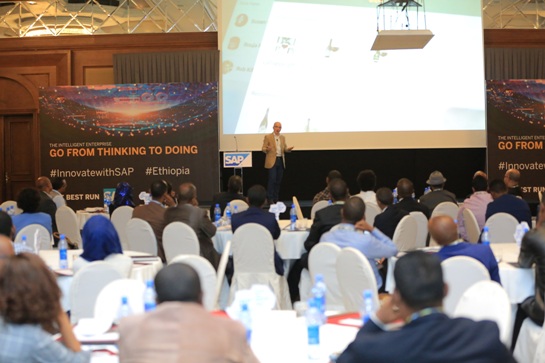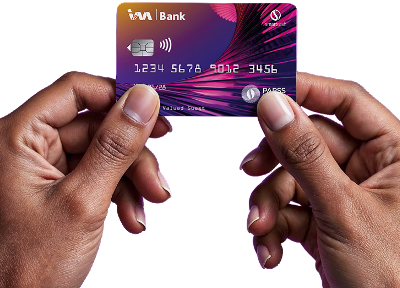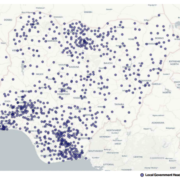By Pedro Guerreiro
The human brain remains one of nature’s greatest wonders. Its estimated 100 billion neurons process and transmit information to create the most complex computational devices in the known universe. As our technological progress accelerates, the prospect of creating artificial intelligence to rival our own is exiting the realm of science fiction and entering science fact. It is not unthinkable that we will create an advanced AI in our lifetimes, ushering in a new dawn for humankind.
These algorithms could help us solve some of the world’s most pervasive problems, including poverty, viruses and superbugs, climate change and improved service delivery to a growing global population.
But algorithms are not the only artificial neural networks currently under development. The entire African continent is arguably transforming into a vast neural network that has the potential to transmit innovation and knowledge across vast distances at the speed of thought. This progress is powered by a mix of increased connectivity, growing digital literacy among its youthful population, enabling policies from African governments, private sector investment and the growing proliferation of so-called exponential technologies.
Connectedness driving progress
Sub-Saharan Africa has made great progress in internet connectivity over the past decade. While the continent has largely missed the wave of fixed line connectivity typical of more developed markets, its rapid adoption of mobile technology has helped its citizens leapfrog into the digital era. By next year, Africa is expected to be home to half a billion mobile broadband connections.

Female office worker at computer – ©Frederic/Cirou/PhotoAlto/Corbis
While this rapid growth in connectivity has brought issues such as fake news, cybercrime, financial scams and political manipulation, most sub-Saharan Africans are positive about the role the internet plays. According to recent research, many Africans say the internet has had a positive impact on education, economy, personal relationships and politics.
The emergence of 5G technologies and the continued rollout of fibre connectivity will encourage more African citizens to make use of online services and app-based tools. It’s also good news for the continent’s efforts to close the digital divide and foster smart city capabilities in key urban hubs.
Building smart hubs and cities
According to GSMA data, the number of active tech hubs in Africa has grown to 442, a 50% increase between 2014 and 2018. These hubs are found mostly in the more advanced African economies of South Africa, Nigeria, Kenya, Egypt and Morocco, often laying the foundation for what looks set to become one of the defining urban trends of our time: the rise of smart cities.
This trend is partly driven by Africa’s relatively small urban population. According to UN data, only 40% of the sub-Saharan Africa population live in cities. Large metropoles such as Lagos and Cairo are expected to grow massively over the coming years as more people move from rural regions: Lagos alone is expected to have a population of 88 million by the end of the century, making it possibly the most populous city in the world.
Across the continent – from Konza Technological City in Kenya to Eko Atlantic in Nigeria to Vision City in Rwanda – governments are launching ambitious smart cities; multi-billion-dollar tech developments that champion the use of technology in urban management and appeal to the younger, more digitally savvy generation typical of the continent.
Refining the world’s greatest deposit of raw talent
If Africa is to harness the talent of its fast growing youth population and power its economic growth, these developments are necessary. The median age in Africa is 19.5, and its youth population is expected to more than double between 2015 and 2055 to reach 226 million. Many will work in a world completely transformed by the exponential technologies entering our lives: AI, blockchain, IoT and machine learning. Efforts to foster greater digital literacy among this large and growing group are accelerating, and for good reason.While 12 million young people entered Africa’s labour force in 2015, only 3.1 million jobs were created.
Fostering greater digital literacy is therefore a priority for the public and private sectors in many countries. The annual Africa Code Week initiative that was started in 2016 has already introduced more than 4.1 million youth to basic coding skills and in 2018 alone trained 23 000 teachers to sustainably teach digital skills within their schools and communities. Major tech companies, from IBM to Google to SAP, have made significant investments into the continent’s digital economy through the establishment of innovation labs, supercomputer facilities, and AI centres.

Team working at a start up
Some have predicted that Africa could become the beating heart of the future global economy, thanks largely to its growing youth population and the ageing population of more developed regions. But it’s just as likely that Africa will become its brain, a massive multicultural melting pot of ideas and innovation that is transmitted instantly across vast distances, solving big problems and enabling a new generation of digital workers to drive global progress for decades to come.
The entire planet could be transformed this way. Imagine a world where technological advancement is balanced with African ingenuity and a deep-held respect for the balance between the natural and digital worlds. I would argue such a world would be a step change from the often-reckless economic development that typified our recent history.
As we enter this new, uncertain era of exponential technologies and progress, Africa is taking bold steps to becoming an economic and innovation driver. And the world will never be the same.

Pedro Guerreiro is managing director of SAP Africa





























